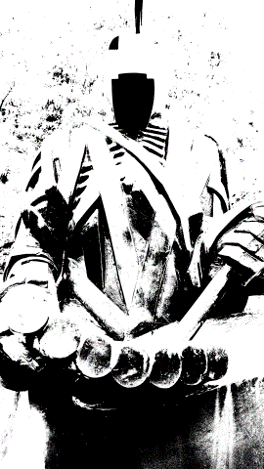
Exports
I, like I assume most people would, used to daydream in the afternoon at work when my wandering mind became bored. Those aren't pleasant moments anymore. Instead of fanciful thoughts, I instead take the time to remember my fiance screaming as she suffocated during the trip down the highway to find help. I remember myself screaming at nothing in a supermarket parking lot the following afternoon. I remember leaving the hospital after she died ten days later and walking to my car to drive home in the snow. My daydreams' chief exports are death and screaming.
In the first week following her death, I couldn't form clear thoughts. I could not, and still cannot, recall complete short-term memories. I would stop breathing as if I had suddenly realized I'd neglected a phantom injury, gushing silently. I don't remember much of this time yet. I know I will someday. The eventuality terrorizes me.
In the second week, I could function, but not for long.
By the third week, I understood the shredding my brain and body had endured. I'd wake up most mornings feeling like I'd been in a fistfight.
After a month, I simply wake up feeling as if I haven't slept for weeks.
Cramped Handwriting
People have asked me if I'll ever write about this experience. I can address that question without irony or sentimentality: everything you ever write is a product of your life, meaning, your life experience, who you are, and the people in your life. I am everything I've ever written and everything I've ever written is a carbonization of me being seen by this earth. Every work of non-fiction is me. Every work of fiction is me. They are refracted light lenses of my life.
I had already begun writing this story before I sat down on the floor of the hospital chapel waiting to hear that she'd finally passed away. The paralyzing New York City septic system of chemical cardiovascular flow that kicks me awake at night is the same crude caffeine that rouses me to the super-minutia of human existence most have the privilege to snore through. That inattentiveness won't welcome me anymore. I see and smell everything like a jetlagged trans-pacific Caucasian traveler making sense of a Tokyo bullet train's unceasing lights. I am now lost at all times, aware and hunting for stability, lest life eat me alive and snap my bones. Every conversation I have, every text message I send in reply to condolences, every sight of sky reflected off city glass—my now-mind finds it all remarkable evidence in the court case to argue against god for my continued existence.
I daydream about that trial, set to begin this very nanosecond and scheduled to last until I die.
In brief, I'll never stop writing about her death. It will be in the words I write and it'll be in the odd lilts when I pronounce my T's improperly, a cramped handwriting made verbal.
Now, I am the last surviving speaker of a dead language. As time goes, I'll learn new forms of communication, new languages, and new words, but I will never speak the sweet, native nonsense so many couples whisper and shriek, whether glad or sad. She will never again specifically and clearly use the exacting, precise twin-language set aside by creation for the half-minded imbeciles that want nothing more than their hearts to be understood.
I'll never again hear what she says, and then smile, or cry, or bristle, or know. Because that conversation, and the tools we made to craft it, are now burnt up.
Time Machine

The shelter of the present moment makes for a casual swerve toward insanity. The past is blocked off, too beat and blasted to welcome visitors. The future is an obstructed vision with the newfound knowledge that nothing can be predicted. I make camp in this exact, flow-moment, somewhere on the side of a mountain—how far up the slope, I can't tell, from where I sit.
I forget things. I forget what day it is. I forget how I got to where I am, how I got to work, whether I've eaten, and who I've spoken to. It's a self-preservation mechanism. My mind is determined to not arrange new terrors on the library shelves for idle moments without an endorphin hit. My brain doesn't want to remember. Thinking makes pain. Speculation makes pain. This aggressive, determined, violent meditation demands forgetfulness and an unhitching from our usual tethers.
One terrible thing about grief: you'll be happy again someday, but you'll never share that happiness with the person who is gone. My electroshock-powered extra-sensory perception that splits and crackles like plaster with each labored movement senses emotion at a PhD lecture circuit-level, identifying momentary happiness like a child identifies a primary color. It's as obvious as pornography and as plain as rain. But I will never be happy—with her—again. For the remainder of my life. We will never form new happy moments together.

